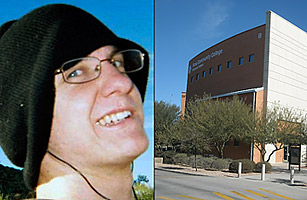
In retrospect, it’s easy to see the evidence that Tucson, Ariz., shooter Jared Loughner was mentally unstable. In his community-college classes, he would laugh randomly and loudly at nonevents. He would clench his fists and regularly pose strange, nonsensical questions to teachers and fellow students. “A lot of people didn’t feel safe around him,” a former classmate told Fox News.
Given these facts and the horrific turn of events at a Safeway supermarket on Jan. 8 that left six dead and 14 others injured, including Representative Gabrielle Giffords, who remains in critical condition, could anything have been done to prevent the violence? What signs that trouble lay ahead were missed? What signs were observed but ignored? In short, what can be done to prevent a potentially ill or unstable person from harming others?
Regardless of resources available, however, the problem with someone like Jared Loughner is that, without a court order, he would not have received treatment without a self-referral. It appears that his community college, which kicked him out, rightly protected its own population — at least one student and one teacher told the New York Times they feared Loughner would bring a gun to class — but left the rest of the community vulnerable. It would have been up to Loughner to seek treatment, a move many psychiatrically ill people would never make. “Most young people who develop a psychiatric illness — particularly a psychotic illness in which they’ve lost the ability to discern fantasy from reality — don’t have a lot of insight into the fact that they are ill,” says Duckworth. He points to a recent online NAMI survey that found that schizophrenics suffered an average of nine years between their onset of symptoms, which often first appear in the late teens and early 20s, and diagnosis.
Often, authorities can intervene only once the illness has taken a dramatic, if not criminal, turn. On the same weekend of the Giffords shooting, the FBI took John Troy Davis, 44, of Denver into custody for threatening the staff of Colorado Senator Michael Bennet. Davis had been a familiar voice to Bennet’s office, often calling to complain about Social Security benefits. But on Jan. 6, he began to say things like, “I’m a schizophrenic and I need help,” and “I’m just going to come down there and shoot you all.” In a subsequent call, he claimed to have killed a woman to get the Senator’s attention. He then said, “I may go terrorism.” The FBI decided to move on the case.
See TIME’s photos of people mourning the victims of the shooting.